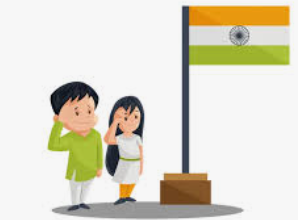Respecting India: A Thousand Words on Culture, Diversity, and Heritage
India, a land of ancient wisdom and vibrant diversity, captivates the imagination with its rich tapestry of cultures, languages, and traditions. In just a thousand words, let us delve into the essence of this remarkable nation and explore the myriad reasons why it commands our respect and admiration.
At the heart of India's allure lies its cultural heritage—a treasure trove of art, music, dance, and literature that spans millennia. From the magnificent temples of Khajuraho to the intricately carved caves of Ajanta and Ellora, India's architectural marvels bear witness to the ingenuity and creativity of its people. Meanwhile, its classical dance forms such as Bharatanatyam, Kathak, and Odissi, and its timeless musical traditions including Hindustani and Carnatic music, continue to enchant audiences around the world with their grace and beauty.
But India's cultural richness extends far beyond its tangible heritage; it is woven into the fabric of everyday life, shaping customs, rituals, and beliefs that have been passed down through generations. Whether it's the colorful festivals that punctuate the calendar year, the mouth-watering cuisine that tantalizes the taste buds, or the warmth and hospitality that greet visitors at every turn, India's cultural tapestry is as diverse as it is captivating.
Indeed, diversity is one of India's greatest strengths—a testament to the resilience and adaptability of its people. With over a billion inhabitants belonging to numerous ethnicities, religions, and linguistic groups, India is a microcosm of the world itself, where myriad identities coexist in harmony. From the snow-capped peaks of the Himalayas to the sun-kissed beaches of Kerala, from the bustling streets of Mumbai to the serene backwaters of Kerala, each region offers its own unique flavor and charm, contributing to the kaleidoscope of experiences that define India.
Yet, amidst this diversity, there is a unifying thread that binds the nation together—the spirit of unity in diversity. Despite the myriad differences that exist among its people, India remains united by a shared sense of identity and belonging, forged through centuries of history and shared experience. It is this spirit that has enabled India to overcome countless challenges and emerge as a beacon of hope and resilience in an ever-changing world.
Respecting India also means acknowledging its contributions to the global community—a legacy that extends far beyond its borders. From the ancient teachings of yoga and meditation that have inspired seekers of wisdom for millennia to the groundbreaking innovations in science, technology, and mathematics that continue to shape the modern world, India's influence is felt in every corner of the globe.
Moreover, India's commitment to democracy, pluralism, and secularism serves as a shining example in a world often plagued by division and discord. As the world's largest democracy, India stands as a testament to the power of dialogue, cooperation, and compromise in resolving differences and building a more inclusive society. Its vibrant civil society, free press, and independent judiciary are a testament to the resilience of democratic institutions in the face of adversity.
But perhaps above all, respecting India means recognizing the inherent dignity and worth of its people—the farmers toiling in the fields, the artisans crafting exquisite handicrafts, the scholars preserving ancient wisdom, and the activists fighting for social justice and equality. It means honoring their struggles, celebrating their achievements, and standing in solidarity with them as they strive to build a better future for themselves and their children.
In a world often defined by division and strife, India offers a vision of hope—a vision of a nation united in its diversity, guided by principles of justice, compassion, and respect for all. As we navigate the complexities of the modern age, let us draw inspiration from India's rich cultural heritage, its spirit of unity, and its commitment to democracy and pluralism. For in doing so, we honor not only India but also the values that unite us as members of the human family.

